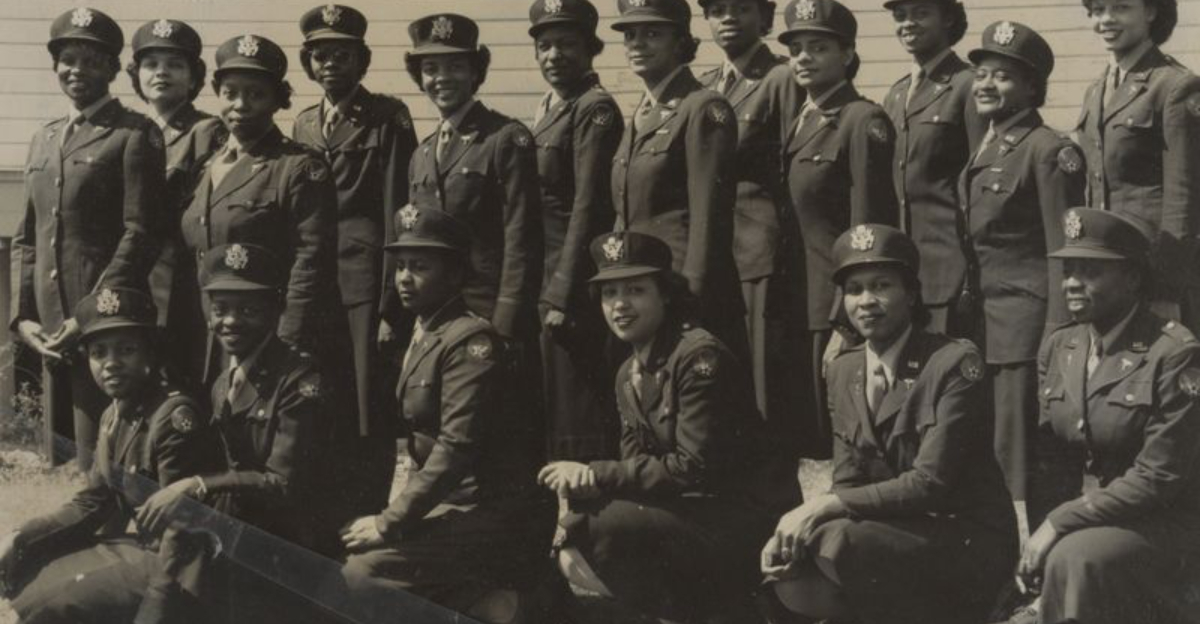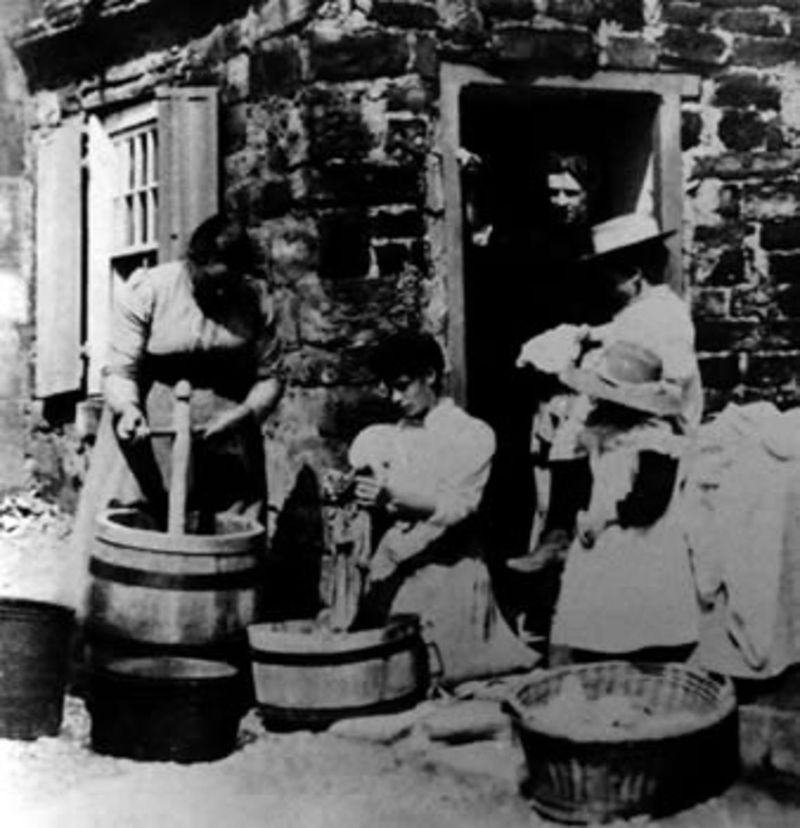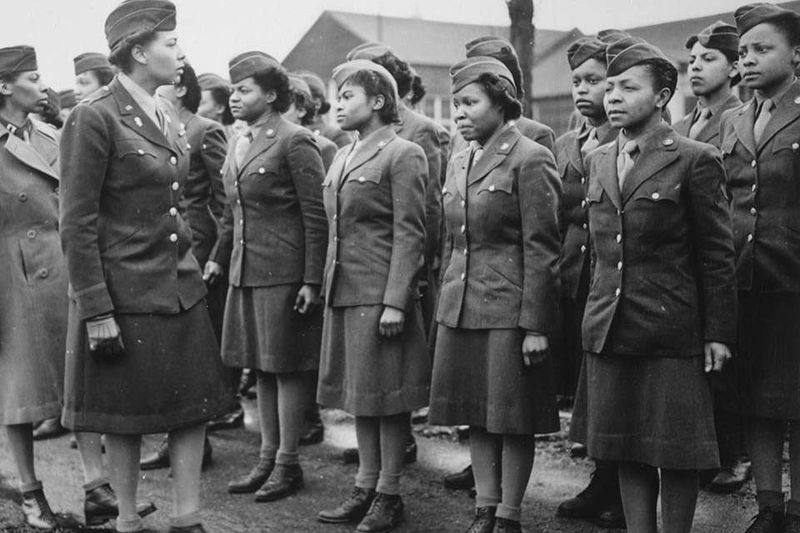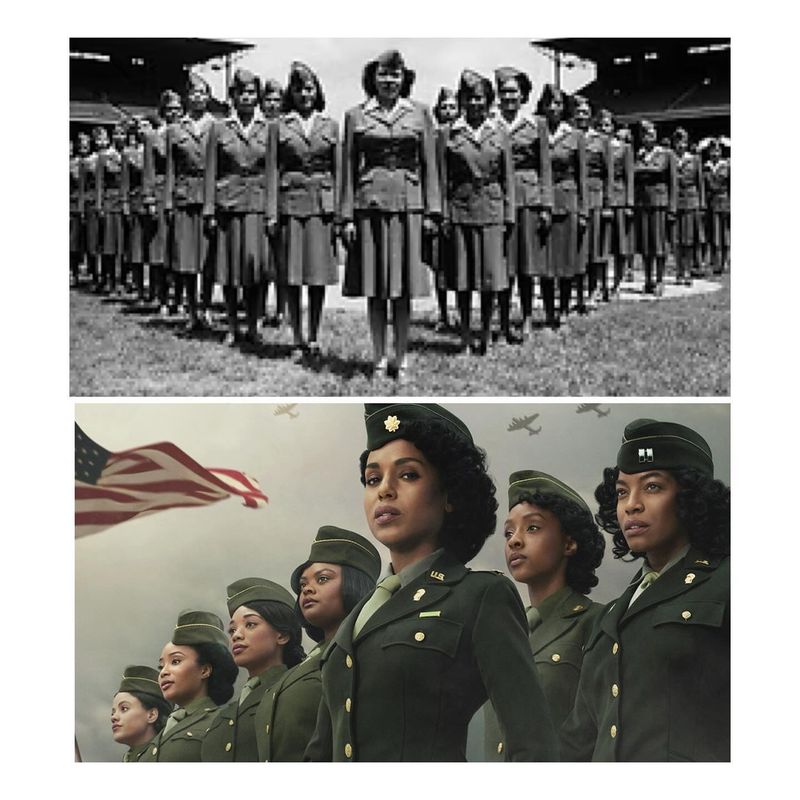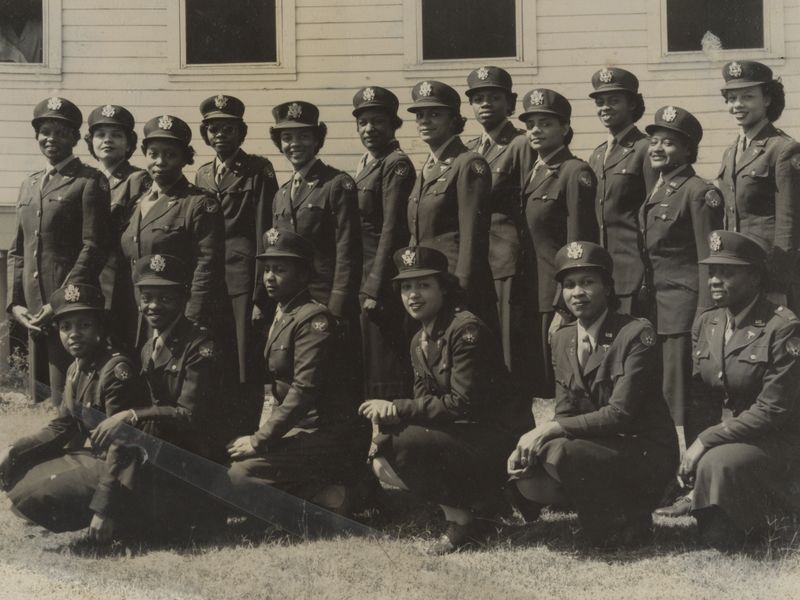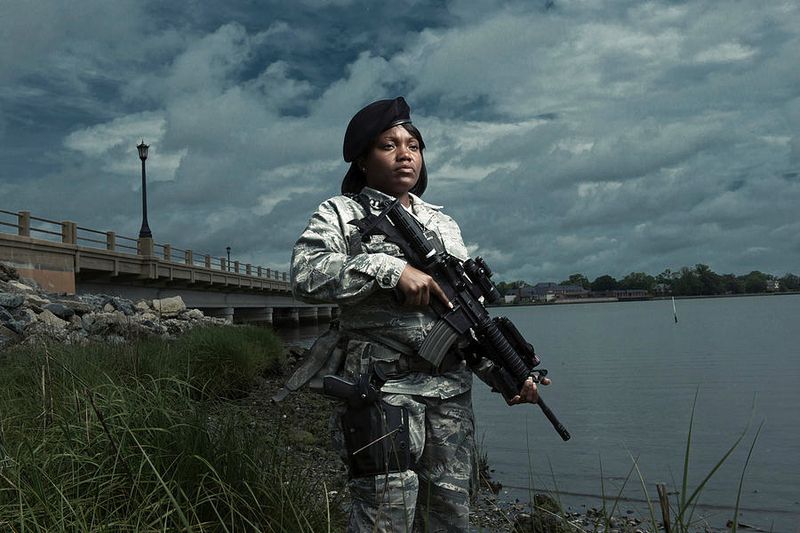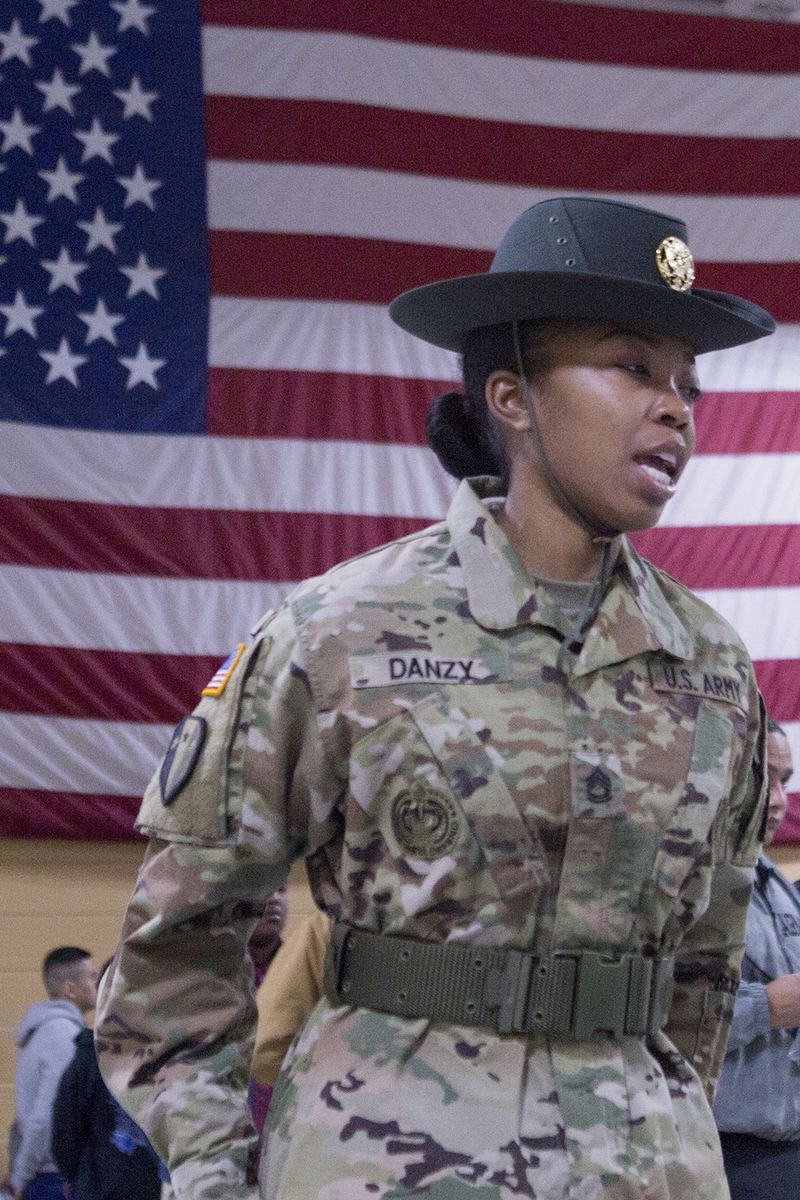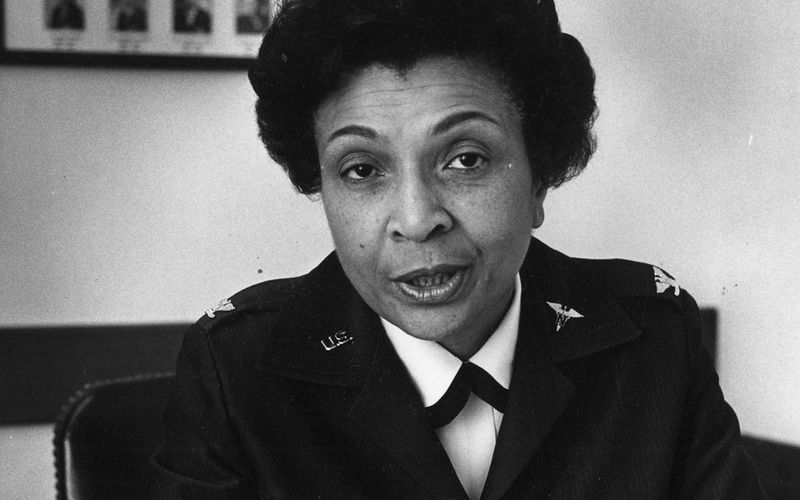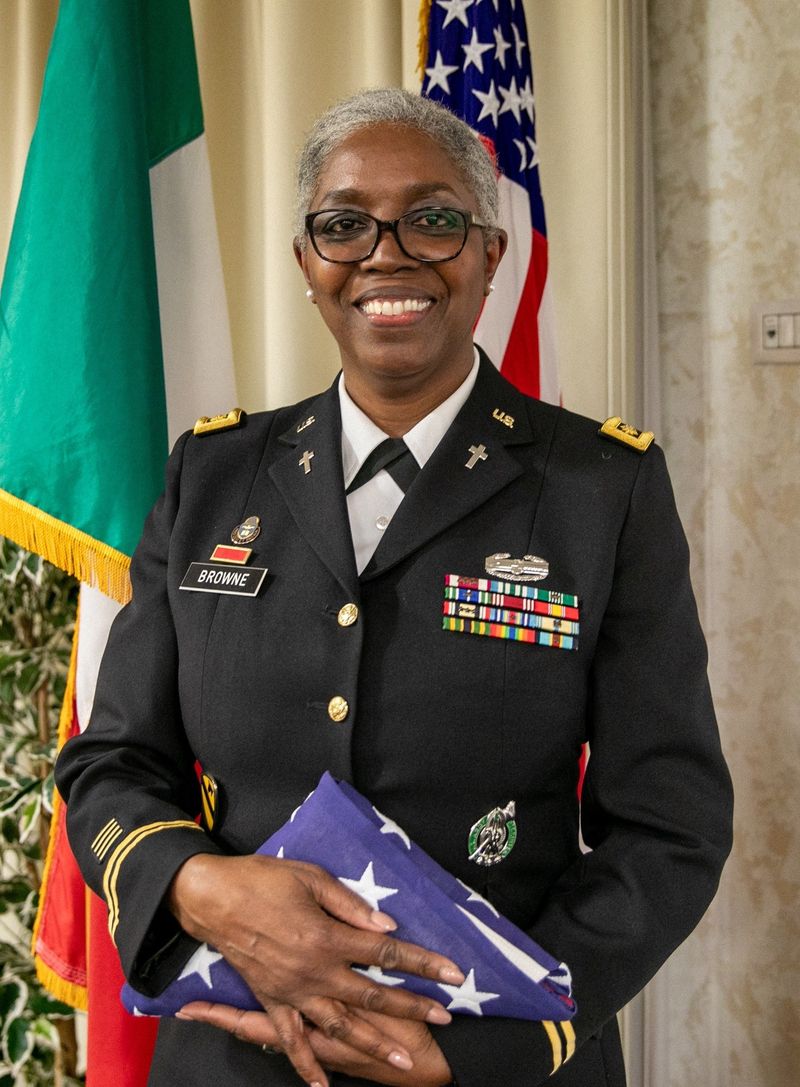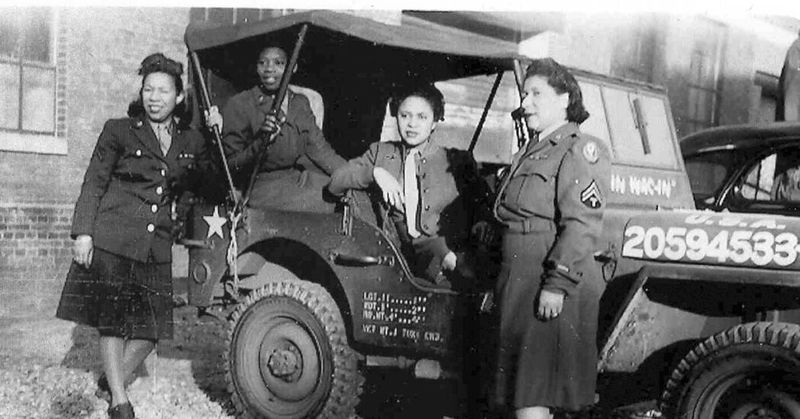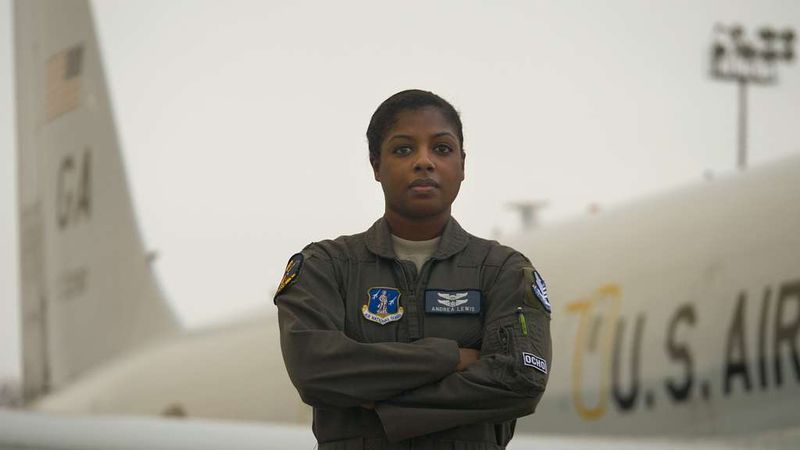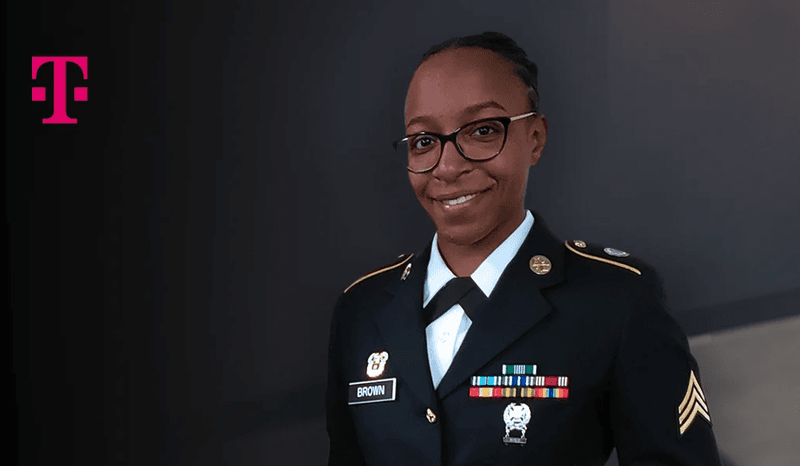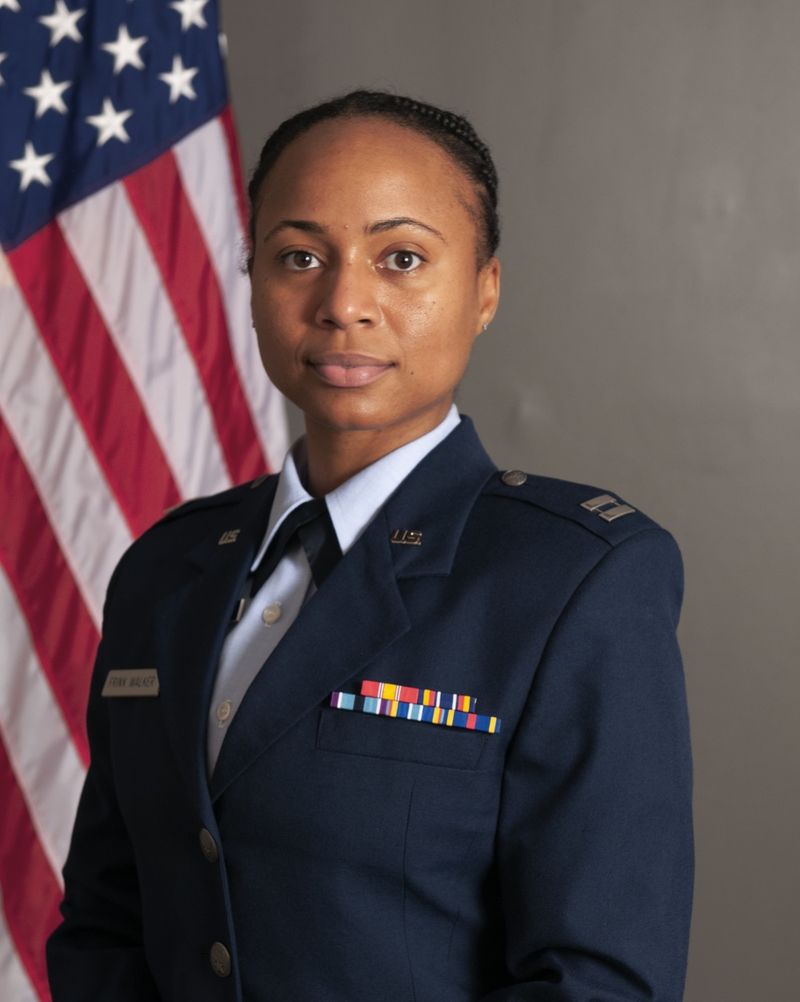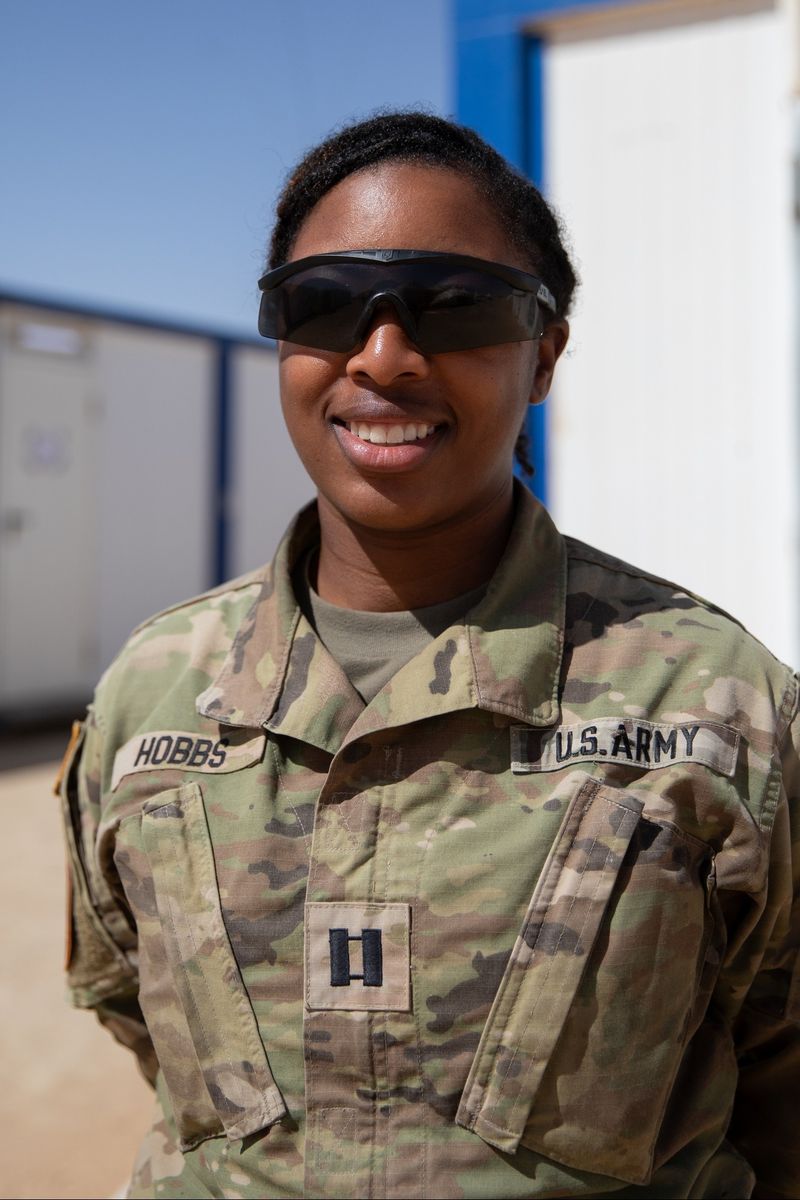African American women have courageously served in the U.S. Army throughout history, often facing both racial and gender discrimination while making remarkable contributions.
Their service spans from unofficial support roles during early American conflicts to leadership positions in today’s military.
These pioneering women broke barriers and created pathways for future generations, demonstrating extraordinary resilience and dedication to their country even when their country didn’t always recognize their worth.
1. Battlefield Nurses
From makeshift Civil War field hospitals to modern medical facilities, African American nurses have saved countless soldiers’ lives. Susie King Taylor, born into slavery, became the first Black Army nurse during the Civil War, treating wounded Union soldiers without pay while teaching literacy in her spare time.
During World Wars I and II, Black nurses served in segregated units, facing discrimination while providing critical care. Hazel Johnson-Brown persevered through these barriers to later become the first Black female general in the Army Nurse Corps during the Vietnam era.
These trailblazers performed everything from wound treatment to complex surgeries, often working longer hours with fewer resources than their white counterparts.
2. Cooks and Laundresses
Behind every effective fighting force stands those who feed and clothe the troops. African American women served as army cooks and laundresses from the Revolutionary War onward, roles that were physically demanding yet critically important to troop morale and health.
During the Civil War, some Black women followed Union regiments, cooking meals over open fires and washing uniforms in rivers and streams. They often worked near battlefields, exposed to the same dangers as soldiers while receiving a fraction of the recognition.
Though officially classified as civilian employees rather than soldiers, these women were truly on the front lines, creating order and comfort in the chaos of war.
3. The 6888th Postal Battalion
“No mail, low morale” was the motto that drove the remarkable 6888th Central Postal Directory Battalion. As the only all-Black, all-female battalion deployed overseas during World War II, these 855 women tackled a seemingly impossible mission in 1945.
Stationed in Birmingham, England, they faced a warehouse packed with millions of undelivered letters and packages for American troops. Working around the clock in three shifts, they processed an astonishing 65,000 pieces of mail per shift.
What military leaders estimated would take six months, the “Six Triple Eight” accomplished in just three, boosting soldier morale by connecting them with loved ones back home.
4. Combat Support Specialists
Following military desegregation in 1948, African American women gradually gained access to combat support roles that put them closer to battlefield operations. These positions include communications specialists who maintain critical battlefield information networks and intelligence analysts who interpret enemy movements.
Supply officers from Black communities ensure troops have everything from ammunition to medical supplies, while vehicle maintenance technicians keep military transport operational in harsh conditions. Their work often places them in forward operating bases in conflict zones.
Though historically barred from direct combat roles until recent policy changes, these women have long been essential to mission success in dangerous environments worldwide.
5. Medical Corps Professionals
From field medics patching wounds under fire to specialized surgeons performing life-saving operations, African American women have excelled throughout the Army Medical Corps. Their journey began with limited roles as nurses’ aides but expanded dramatically following desegregation.
Today, Black women serve as physicians, dentists, physical therapists, and mental health professionals, addressing the full spectrum of soldier health needs. Many have pioneered treatments for combat-specific injuries and PTSD.
During deployments, these medical professionals work in challenging environments with limited resources, sometimes performing complex procedures in makeshift facilities while maintaining remarkably high survival rates for injured personnel.
6. Military Police Forces
Standing at checkpoints in war zones or maintaining order on military bases, African American women have served with distinction in the Military Police Corps. Their responsibilities range from base security to criminal investigations and prisoner handling during conflicts.
MP duties often place these women in high-stress situations requiring split-second decision-making and conflict resolution skills. During deployments to Iraq and Afghanistan, female MPs played crucial roles in searching local women at checkpoints, respecting cultural sensitivities while maintaining security protocols.
These officers also train foreign police forces, particularly female officers, creating lasting security improvements in post-conflict regions through mentorship and professional development programs.
7. Drill Sergeants and Instructors
“You will not like me!” These words have echoed across training grounds as African American women drill sergeants transformed civilians into soldiers. With their distinctive campaign hats and commanding presence, these instructors are responsible for molding raw recruits into disciplined military professionals.
Black female drill sergeants often bring unique perspectives to training, having overcome both racial and gender barriers in their own careers. Their rigorous physical training programs and tactical instruction build both combat readiness and character in new recruits.
Beyond basic training, many serve as advanced instructors in specialized schools, teaching everything from combat medicine to leadership principles that shape the Army’s future officer corps.
8. Commissioned Officers
Breaking through what many called the “brass ceiling,” African American women have risen through officer ranks to lead at the highest levels of the Army. Their journey began when few Black women received commissions, often facing questions about their leadership capabilities based on both race and gender.
General Hazel W. Johnson-Brown shattered barriers in 1979, becoming the first Black female general after beginning her career when Army nurses were still segregated. Today, Black women command everything from small platoons to large battalions.
These officers navigate complex military bureaucracies while mentoring younger soldiers, creating pathways for future leaders while making critical decisions that impact national security and military readiness.
9. Chaplains and Spiritual Advisors
Providing spiritual comfort in war’s darkest moments, African American women chaplains serve soldiers of all faiths in the Army. Since the 1970s, these spiritual leaders have conducted services, counseled troubled troops, and performed religious rites from remote outposts to major bases worldwide.
Their ministry extends beyond traditional religious services to include grief counseling after combat losses and ethical guidance during morally complex missions. Many Black female chaplains draw from their communities’ rich spiritual traditions while serving diverse military populations.
During deployments, they create spaces for reflection and healing, often working alongside mental health professionals to address the invisible wounds of war that affect soldiers’ spiritual well-being.
10. Military Journalists
Armed with cameras and notepads instead of rifles, African American women military journalists document Army operations for both historical record and public information. Their stories capture everything from combat missions to humanitarian efforts, creating an essential link between military operations and civilian understanding.
Working for Army publications and broadcast stations, these journalists often deploy alongside combat units, facing similar dangers while carrying recording equipment rather than weapons. Their photographs and articles preserve the experiences of soldiers who might otherwise go unrecognized.
Beyond combat reporting, many focus on highlighting diversity within ranks, sharing stories that inspire future generations of Black women to consider military service as a viable and rewarding career path.
11. Aviation Pioneers
Soaring above limitations, African American women have earned their wings as Army helicopter pilots and aviation support specialists. Despite aviation being one of the military’s most exclusive fields, these women mastered complex aircraft systems and flight protocols to take command of the skies.
Captain Andrea Lewis made history in 2017 as the first Black woman pilot in the Georgia National Guard, building on the legacy of earlier pioneers. These aviators fly everything from medical evacuation missions to transport operations in combat zones.
Beyond piloting, Black women serve in aviation maintenance, ensuring aircraft reliability through meticulous inspections and repairs that keep Army helicopters operational in the world’s most challenging environments.
12. Cybersecurity Warriors
On digital battlefields, African American women defend Army networks from sophisticated cyber attacks that threaten national security. As warfare evolves into cyberspace, these specialists use advanced coding skills and security protocols to protect military communications and sensitive information.
Many come from STEM backgrounds, bringing technical expertise to roles that combine computer science with military strategy. Their work includes identifying network vulnerabilities, developing security algorithms, and responding to active cyber threats from foreign adversaries.
In intelligence operations, they intercept and decode enemy communications, providing critical information to commanders while maintaining the secrecy necessary for successful military operations in an increasingly connected battlefield environment.
13. Military Justice Advocates
Fighting for equality within ranks, African American women have served as powerful advocates for military justice reforms. During the segregation era, they risked careers by challenging discriminatory policies that limited their opportunities and treatment.
In more recent decades, Black female JAG officers (Judge Advocate General’s Corps) have worked within the military legal system, handling everything from courts-martial to policy development. Many have championed improvements in how the military addresses sexual harassment and assault cases.
Today’s advocates focus on creating truly inclusive environments where all soldiers can serve with dignity, pushing for mentorship programs and leadership pathways that ensure the Army reflects the diversity of the nation it defends.
14. Logistics Commanders
Moving mountains of supplies across continents, African American women logistics officers ensure that every soldier has food, ammunition, fuel, and equipment exactly when needed. These supply chain experts coordinate massive transportation networks that span oceans and continents to support global military operations.
During Desert Storm, Black women quartermaster officers managed fuel distribution systems that kept tanks and vehicles operational across vast desert terrain. Modern logistics commanders leverage technology to track thousands of items in real-time, optimizing distribution while minimizing waste.
Their work extends to humanitarian missions, where they coordinate delivery of critical supplies to disaster zones, demonstrating how military logistics expertise can save civilian lives during crises worldwide.
